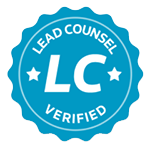A traumatic brain injury (TBI) can occur when an external force impacts the head, damaging the brain. This type of injury can lead to serious physical, cognitive, and emotional problems.
If you fell at work and hit your head, there is a good chance that you may have a TBI since falls are one of the leading causes of a TBI.
The symptoms and consequences of a TBI
The severity of a TBI can range from mild (concussion) to severe (coma or prolonged unconsciousness).
Common symptoms of a mild traumatic brain injury include headaches, dizziness, nausea, and vomiting. More severe injuries can cause loss of consciousness, seizures, and even coma. In some cases, people who have suffered a traumatic brain injury may also experience difficulties with memory, concentration, and other cognitive functions.
If you have any symptoms of a TBI after falling at work, it’s essential to seek medical attention immediately. It is a serious medical condition that can have a lasting impact on your health. A TBI can lead to lingering health problems, even permanent disability, if left untreated.
The appropriate treatment will vary depending on the severity of the injury. In general, however, treatment for a traumatic brain injury may include rest, pain medication, and physical therapy. Depending on the extent of the injury, patients may also require speech therapy, occupational therapy, and counseling. Surgery may sometimes be necessary to relieve pressure on the brain or repair the damage.
If you or a loved one has experienced a TBI from a fall at your workplace or through some other reason, it is crucial that you are aware of your rights and options under workers’ compensation.



